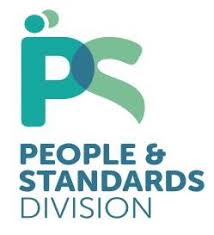|
If you are having trouble viewing this email, open it with your internet browser,
download the PDF version
or contact us.
|
 |
| #20 - December 2019 |
| PDF version - Manage your subscription - Search - Archives |

|
|
vision RH is a newsletter published by the French Directorate General for Administration and the Civil Service (DGAFP). It draws on information sources and reports issued by public administrations, the private sector, international organisations and the press, in several different languages. It aims to provide a broad view of current human resources and civil service initiatives.
|
|

|

|
| Negotiating collective bargaining agreements – a trend that is gaining ground in the civil service | |||||
|
At a time when France is preparing to bolster the civil service's collective bargaining mechanism to "improve human resources management and working conditions", it is worth observing how this social dialogue tool is used elsewhere in the world. Which countries have made use of it, and if they have, for which category (or categories) of civil servants, or for which professions? What areas do agreements cover? Although to date seventeen EU countries1 have ratified the ILO's C151 - Labour Relations (Public Service) Convention – Article 7 of which specifically encourages the development of collective bargaining2 – practices vary widely. In Germany, the "Tarifverträge" are triennial and negotiated between the administration and the trade unions, either at federal level or in each of the 16 Länder. They apply only to employees under contract (60% of the workforce) and mainly concern pay scales and working time. Even if there is no obligation to enact the agreement into law, the result often serves as a guideline for the evolution of the regime applicable to civil servants. In Canada, the Treasury Board Secretariat is responsible for renewing the 27 collective agreements in negotiation with certified bargaining agents. Arbitration and conciliation procedures are provided for to settle disputes and reach a compromise. However, the agreements cannot directly or indirectly alter or eliminate existing terms and conditions of employment, nor can they establish new terms and conditions, which is a subject for legislation. In Spain, the process of hiring contract employees and organisational restructuring has, over time, led to an increasing number of "Convenio colectivo" (collective bargaining agreements) that apply to personal laboral (contract workers, who represent the majority of government employees). The government has since undertaken a major consolidation effort to harmonise HR management. They cover a wide range of topics, with the exception of pensions. In Italy, a national agency (ARAN) is responsible for negotiating all agreements. All public employers (central government, provinces and municipalities) contribute to financing it, and are grouped into 12 sectoral colleges. In a country where 85% of public employees are under contract, this independent institution plays a central role in labour/management relations, which can cover everything except occupational health and safety. It enjoys a large degree of organisational and managerial autonomy. Collective bargaining in the UK is based on an overarching legislative framework, which does not distinguish between public- and private-sector employees. However, specific negotiated provisions, the "Pay review bodies", exclusively regulate wages for seven categories of public employees3. In Ireland, the Netherlands (where the status of public employees changed as of 1 January 2020) and the Scandinavian countries, collective agreements, whether national, regional or local, are long-standing and concern almost all staff. Some countries, such as Greece, Portugal and Slovenia, also have a public sector-specific legal framework, but the number of agreements signed remains fairly limited. |
|||||
|
|||||
|
|
|||||

|
|||||

|

|

|
| A European network of authorities responsible for whistleblowers | |||||
|
At the initiative of the Defender of Rights, ten European countries – members of the Network of European Integrity and Whistleblowing Authorities (NEIWA) – signed the "Paris Declaration", the first concrete step in the application of the new Whistleblowing Directive. The text recommends that all Member States adopt a protection scheme that is accessible to all, highly protective and backed by sufficient human and financial resources. |
|||||
|
|||||
|
|
|||||

|
|||||
| New Zealand's public service reform | |||||
|
Following a national consultation that was conducted a year ago, a reform of the civil service will replace current legislation, which dates back to 1988. The main objective is to better organize and strengthen inter-ministerial work by creating thematic inter-sectoral governance structures. The result? Harmonisation of the multiple regimes applicable to public employees, which is essential to bolstering their mobility. |
|||||
|
|||||
|
|
|||||

|
|||||
| "GCEntrepreneur", Canada's group of innovators | |||||
|
They come from every government department and work in small teams to develop a portfolio of innovation projects. To help them fulfil their role as ambassadors within the federal public service, entrepreneurs receive training and customised support, allowing them to develop skills and capacities so that they can promote innovation in their work environment. « Educate and inspire civil servants to apply new approaches and new tools related to their duties »
|
|||||
|
|||||
|
|
|||||

|
|||||

|

|
| Promoting diversity in the German administration | |||||
|
By encouraging people with immigrant backgrounds to join its workforce, the public sector wants to be a better reflection of the society it serves. The Commissioner for Migrants, Refugees and Integration is launching a campaign to combat certain pre-conceived ideas that are still prevalent among potential candidates, as well as a seven-point action plan in federal, regional and municipal administrations to raise awareness among recruiters. |
|||||
|
|||||
|
|
|||||

|
|||||
| OneLearning, the training scheme for Irish civil servants | |||||
|
This is one of the flagship measures of the Civil Service Renewal Plan: a centralised and modernised training system that makes full use of new technologies. The OneLearning platform is now accessible to all civil staff, who can take advantage of a vast selection of interactive sessions and courses, whether in the area of business skills or personal development. |
|||||
|
|||||
|
|
|||||

|
|||||
| Internal mobility programme in the Norwegian civil service | |||||
|
The government's HR division has put out a call for applications to encourage staff to move between departments. The goal is to bolster the expertise they have acquired and to increase cross-departmental collaboration. Implementation of the measure is supported by activities and tools that ensure good integration, operational learning and ongoing sharing of experiences. « Mobility is increasingly quoted as an essential tool for managing cross-cutting and complex challenges »
|
|||||
|
|||||
|
|
|||||

|
|||||

|

|
| Examining senior management profiles in the Italian government | |||||
|
The ANCORA project analyses skills and resources within the Italian public service. Under the joint leadership of the National School of Administration and three universities, the project's goal is to draw up a detailed map of job profiles with an emphasis on leadership capabilities. Individual career development plans will be defined to fill existing gaps. |
|||||
|
|||||
|
|
|||||

|
|||||
| New compensation method for senior UK civil servants | |||||
|
A new pay progression model was presented by the Cabinet Office. Based on the real and objectively-assessed ability of a civil servant to carry out reforms while supporting the productivity of his or her staff, the new model also rewards certain specific skills (budgetary, accounting) identified as essential to the development of the administration. |
|||||
|
|||||
|
|
|||||

|
|||||
| A strategy for the digital professions in the greater Bordeaux region | |||||
|
To cope with real difficulties in attracting candidates (more than 1 out of every 6 positions in the IT Department are unfilled) partly due to the presence of many companies, the Bordeaux authorities have implemented an action plan that uses several leverage points – apprentice partnerships, increased use of contract workers, an expertise bonus for civil servants and customised support for new employees. « The attractiveness of the greater region has become an opportunity since the implementation of an HR policy in line with reality »
|
|||||
|
|||||
|
|
|||||

|
|||||

|

|
| The OECD's Government at a Glance 2019 | |||||
|
This report, published biennially by the OECD, is the largest database on the administrations of its 36 member countries, with eight more countries added this year. In its conclusions on public employment, the OECD states that the level of public employment has broadly remained stable, but that not all employees are treated equally. Civil servants benefit from better safeguards. |
|||||
|
|||||
|
|
|||||

|
|||||
| Agreement on the reduction of temporary employment in the Spanish public sector | |||||
|
Trade unions and the government have signed an agreement to reduce term contract employment in the public service. It stipulates that 15% of approved positions this year will be set aside to transform fixed-term contracts into permanent ones (education and justice departments, central government administration). The massive use of temporary contracts had been criticised by the EU. |
|||||
|
|||||
|
|
|||||

|
|||||
| Support for Dutch civil servants | |||||
|
To prepare for the change in staff status that entered into force on 1 January 2020 (under which employment contracts will be governed by private-sector law), a support service is available to all public employees and staff in the HR departments, which will have a dedicated platform at their disposal. Labour law specialists will answer questions and provide training on all the legal ramifications related to this change. « A help and information center for all, supplemented by a wide range of training courses adapted to the different HR target groups »
|
|||||
|
|||||
|
|
|||||

|
|||||

|

|
| Sanofi is boosting its social role through a more inclusive company | |||||
|
The pharmaceutical company is strongly committed to giving everyone a chance by promoting recruitment methods that encourage diversity. Operating at 34 sites throughout France, Sanofi was one of the first companies to join the PAQTE1 initiative, whose goal is to improve the economic inclusion of priority urban neighborhoods. In addition to taking on trainees, HR departments also focus on work-study programmes, an effective and appealing path to joining the workforce. The goal is to reach 6% of total employees by 2020. An initial campaign was launched in partnership with Mozaik RH and its "diversify your talents" platform. To successfully integrate into society, the work-study community has five tools at its disposal, grouped under the "Starting Blocks for Youth" scheme. Every employee and manager must take the "Challenge your bias" training course, which focuses on behaviours to be aware of and how to neutralise discrimination-related prejudices. This strategy, which is fully in line with Sanofi's CSR policy, contributed to the company's recognition as a "Global Top Employer 2019" for its HR best practices. |
|||||
|
|||||
|
|
|||||

|
|||||

|

|
| Malta's challenge for bringing together users' and public employees’ expectations | |||||
|
With 50,000 members of staff (a public employment rate of 23%), the administration of the EU's smallest Member State is doing everything possible to develop its human capital. Following reform efforts carried out between 2014 and 2017 under the leadership of the Management Efficiency Unit, the departments responsible for personnel administration and public sector modernisation were merged into a division entitled "People and Standards". This is a clear indication of the government's willingness to reorient its HR processes towards both internal objectives (staff well-being and improved career paths) and external objectives (better meeting users' needs). As part of a continuous improvement process, the division has drawn up twelve directives that offer a framework for procedures in the areas of recruitment, appointment, assessment, management, respect for rights and obligations, as well as quality audits and management control. .
Intiatives that have been introduced include: • Two units tasked with employee well-being (People Support & Wellbeing) and career development (Research & Personal Systems) have been set up • The assessment system has been completely redesigned (comprehensive rollout of the 360° approach) and made paperless. It includes performance indicators and objectives directly tied to improvements in the public service • An application (IDEAs) allows everyone to submit proposals for solutions and to monitor their implementation if they are selected. More recently, the government has set up a "Civil Service Institute" that provides training for staff and managers. Modeled along the lines of the IPA, its Irish counterpart in Dublin with which it closely cooperates, the Institute develops training programmes in partnership with the University of Malta and the College of Art, Science and Technology. In addition to standard in-service training, it provides: • Internships in private companies to improve employees' knowledge of new working methods, and relationships with users in particular • Scholarships that enable a certain number of public employees to take full- or part-time degree courses each year, in return for an agreement to serve the government. |
|||||
|
|||||
|
|
|||||

|
|||||

|
|
Share
|
||||
|
||||
| SUBSCRIBE - UPDATE YOUR SUBSCRIPTION - ARCHIVES - RSS - UNSUBSCRIBE |
|
French Directorate-General for Administration and the Civil Service (DGAFP)
Publication Manager: Thierry LE GOFF Managing Editor: Xavier MAIRE Editor-in-chief and Autor: Jean-François ADRIAN Layout and graphic design: Jean-François ADRIAN and Aphania. The texts of the publication do not reflect the point of view of the DGAFP
In accordance to the French Act n°78-17 of 6 January 1978 on information technology, data files and civil liberties and to the european General Data Protection Regulation (GDPR), your personal data is stored securely and you are entitled to access, correct and delete them. To do so, you should send an e-mail to (contact-visionrh@kiosque.bercy.gouv.fr) or write to DGAFP: 139, rue de Bercy - 75012 Paris; France.
Reproduction is authorized with mention of the source © DGAFP 2020 / N° ISSN: 2606-7528. |
|
|




